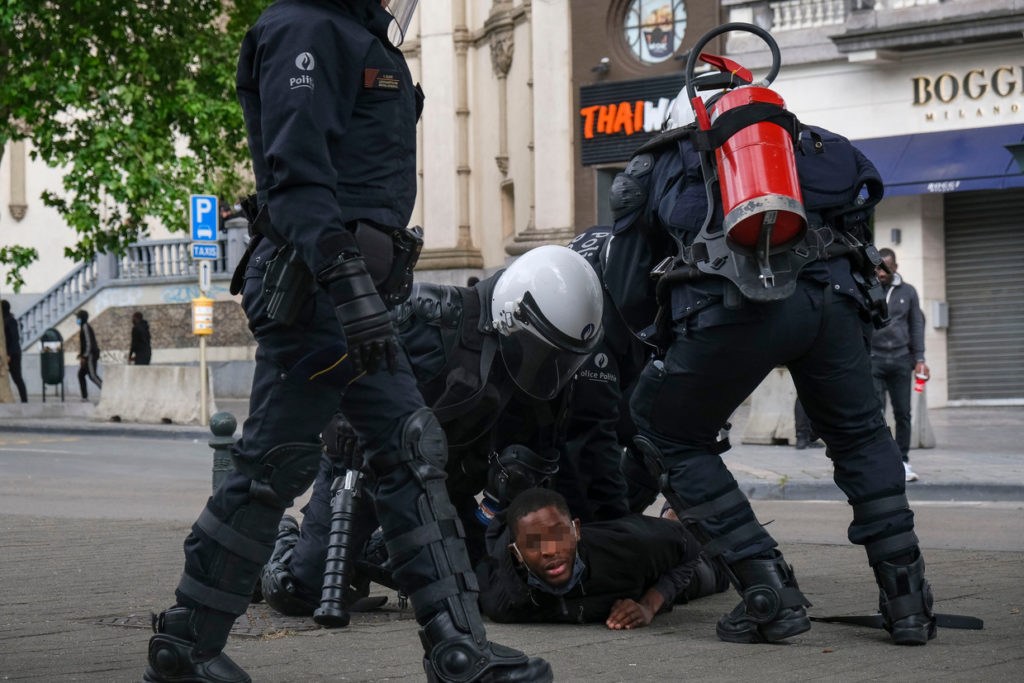Belgium's human rights organisations are launching a project to map police violence in the region by collecting testimonies from people who have experienced such abuse from officers.
The initiative launched by Liga voor Mensenrechten and its French-speaking counterpart, la Ligue des Droits Humains (Human Right's League) is hosted on www.policewatch.be, and allows victims and witnesses of police brutality to submit testimonies as well as receive advice on their rights when such incidents occur.
"For many citizens, such violence is a reality that often goes unpunished," human rights lawyer and chair of the organisation Kati Verstrepen said.
The police can use force to carry out their duties, but only if the reason is legal or legitimate, for which the conditions in Belgium were included in the Police Act (1992).
Illegal police violence, meanwhile, includes physical as well as verbal acts that fall outside the legal framework, meaning it is not proportionate, necessary or legitimate.
The organisation decided to launch the project as the problem is becoming increasingly acute, so much so that Belgium has been sanctioned several times by the European Court of Human Rights for the seriousness of the issue.
Related News
- Ethnic profiling and violence: 75% of Brussels youth fear police
- Government looks to fix 'increased tension' between youth and police
Earlier this year, the United Nations Committee for the Elimination of Racial Discrimination (CERD) also expressed concern over police violence, specifically alleged racist violence and profiling by police in Belgium.
"We started Police Watch to offer solutions to stop this problem, with the victims Jonathan, Adil, Mawda, Mehdi, Joseph, Lamine, Ouassime and Sabrina, among others, in mind," Verstrepen said.
The project works on three levels: informing citizens about their rights when confronted with police brutality, analysing testimonies added via the website and reports on such behaviour to gather data, and taking action to tackle obstacles through strategic policy influencing to ensure "the number of victims of illegal police violence decreases considerably."
Structural change needed
Despite the knowledge that illegal police violence is an issue in Belgium, a recent report found that the institution has "insufficient insight into the problem," mainly because there is no system to track such incidents, meaning there are also no clear, centralised figures related to such violence.
"We observe a lack of independent investigation, data collection and punishment. As human rights organisations, we see no benefit in false solutions such as more officers on the streets or bodycams," Verstrepen stressed, adding that instead, this issue should be tackled structurally.
According to the human rights organisations, this should include, among others, an adaptation of police training, a more concrete complaints procedure, protection of the right to film the police; and a rights-based follow-up of victims.
"Finally, we advocate the creation and strengthening of alternatives to police interventions," Verstrepen concluded.

